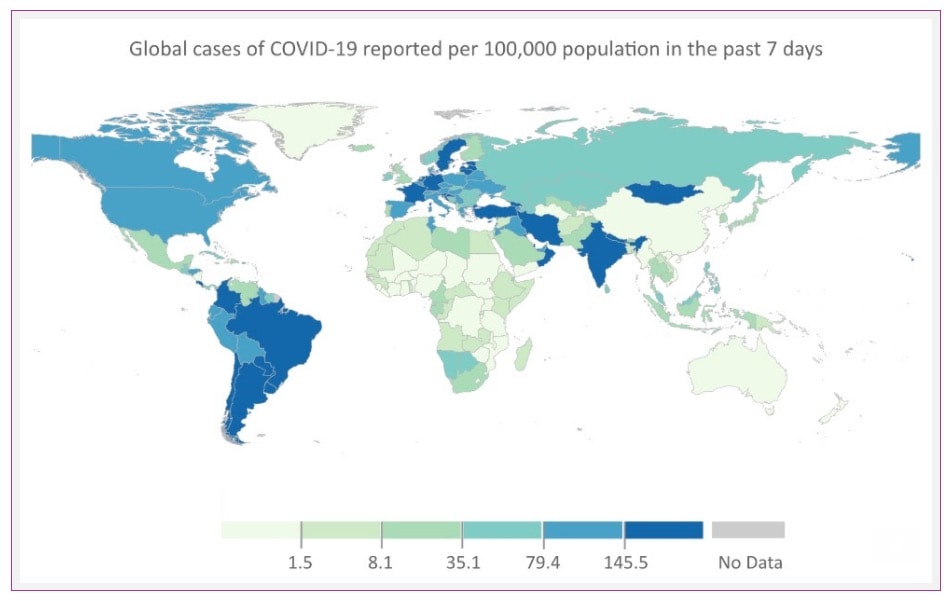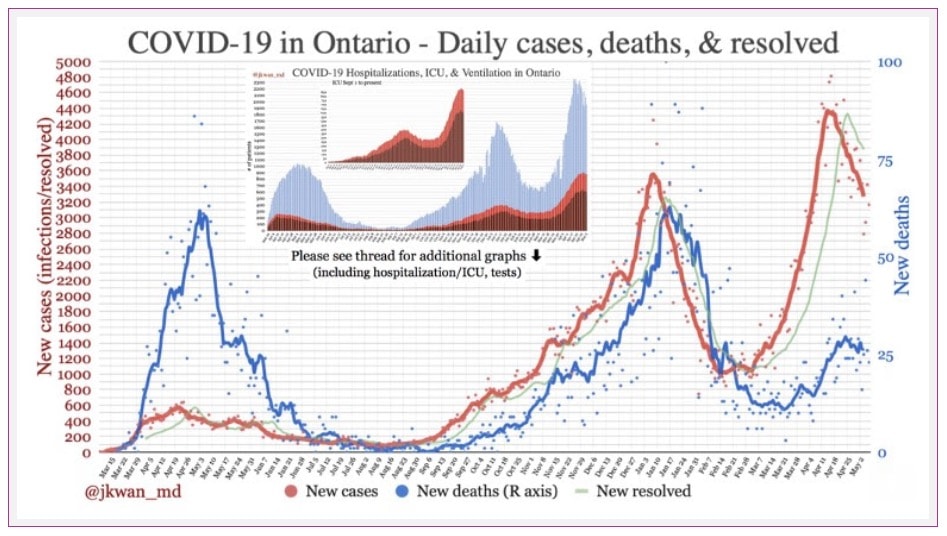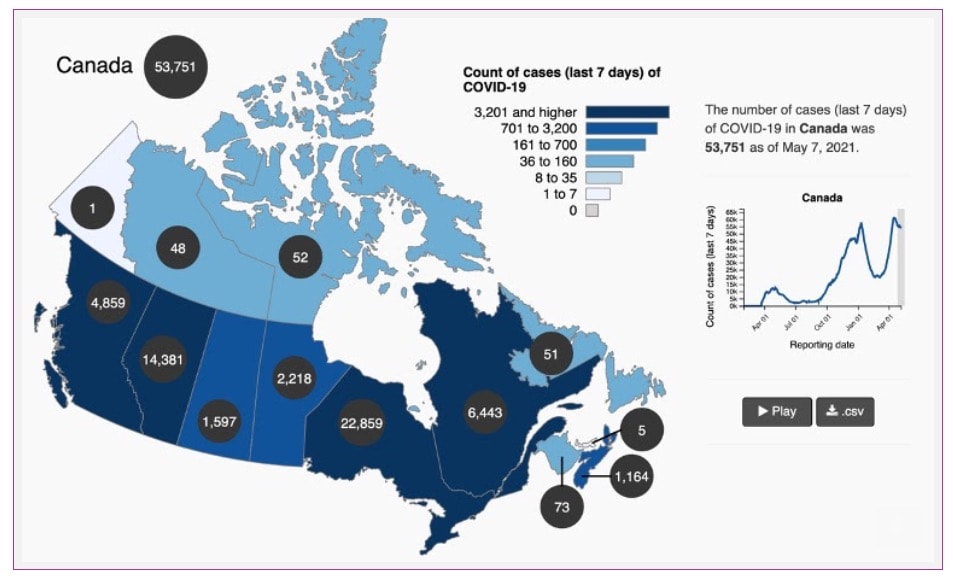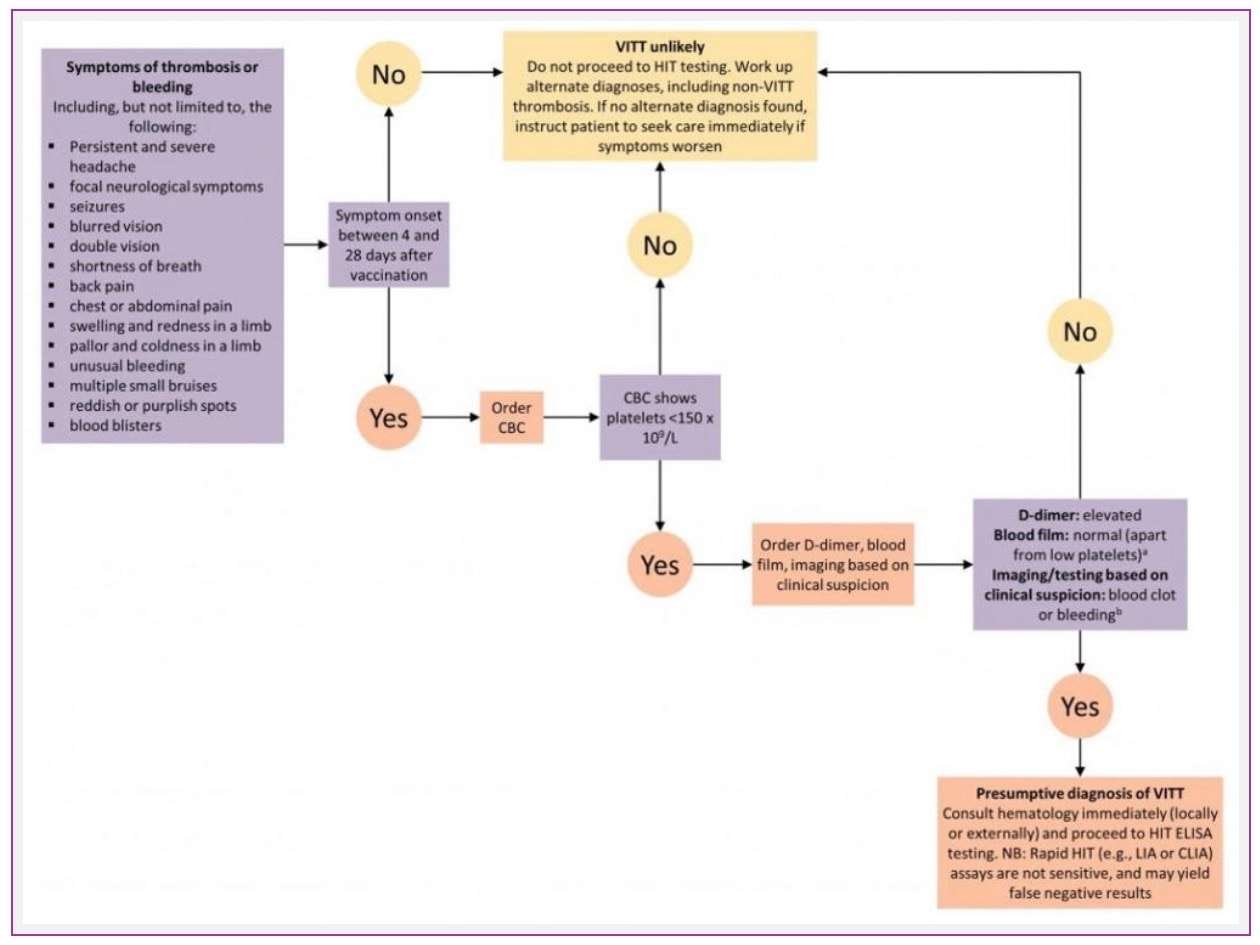Latest news – kids 12+ in Canada can get vaccinated!
Hello friends!
Welcome to week 28 of COVID-updates!
I hope you and your loved ones are healthy and safe and enjoying the sweet taste of Summer!
Thank you for all your support and kind words week after week. I am very appreciative when you send my email to friends and family and encourage them to subscribe. I don’t make any money off this newsletter, but I do think it’s important that you have a source of credible, evidence-based information. There is so much noise and myth, fear-mongering nonsense out there, and I consider my weekly updates here (and my daily Instagram/Facebook Stories) a public service.
Let’s review this week’s bad news, good news, my most asked question(s) of the week, and my silver lining.
The bad news
There have been over 156 MILLION cases of COVID-19 reported worldwide, with over 3.2 MILLION deaths attributed to the infection.

Canada has reported almost 1.3 million cases of COVID-19, with over 24,500 deaths.
In Ontario, we have nearly 900 people in intensive care.


Manitoba has seen a rise in cases and is closing many businesses and limiting gatherings. Outdoor gatherings will be limited to five people, in-person dining in restaurants and bars will close, and retail stores will be limited to 10% capacity. Gyms, museums, art galleries, libraries, and indoor religious services will be closed.
Nova Scotia is tightening border restrictions, and schools will remain closed for at least the rest of May as their cases rise.
The humanitarian crisis in India continues, with a shocking 4000 people dying each day. Over 415,000 cases of COVID-19 have been reported in India, with this likely being a significant underestimate.
Mere months before the Tokyo Olympics, a state of emergency has been extended in Japan and three other areas until the end of May, as they battle another wave of infections.
The good news
Pfizer has begun the process to get U.S. regulatory approval for its vaccine for age 16 years and older. This would be the first COVID-19 vaccine to receive full approval from the U.S. F.D.A.
But guess what? Health Canada approved the vaccine in kids 12 and older, the first country to do so.
Which leads into the…
The most common question of the week
When can my child get the Pfizer vaccine?
Last week, Health Canada approved the Pfizer vaccine for kids 12 years and older. The vaccine had already been authorized for use in people 16 years of age and older. Kids 12-17 will receive the same dose regimen as adults.
The approval is based on the Pfizer Phase 3 clinical trial results involving 2,260 youth aged 12 to 15. The U.S. trial found the vaccine was 100% effective in kids. This is compared to the 95% efficacy found in older age groups in previous trials.
Dr. Dina, you have said that kids are not getting very sick from COVID-19. Why should kids get vaccinated?
While it is true that younger people are far less likely to experience serious illness, require hospitalization, or death from COVID-19, some kids do get sick. About 20% of COVID cases are in kids, and a safe and effective vaccine can help control the spread of COVID from kids to adult loved ones and teachers, who are at higher risk of severe illness and death.
The more people are vaccinated, kids and adults, the closer we are to achieving herd immunity, and the sooner we can get back to a more normal way of life. Experts say kids are more likely to get back to school and stay in school if more people are vaccinated.
Though it is approved for use, individual provinces and territories will determine whether children will receive the vaccine.
In British Columbia, Dr. Bonnie Henry says that kids 12 and older could begin to receive doses before the end of the school year, with vaccines likely delivered through the school system.
Albertans age 12 years and older will be eligible for the Pfizer vaccine this week.
In Saskatchewan, all residents 12 and older will be eligible for a first COVID-19 vaccine by May 20. They will be delivered in school-based programs, pharmacies, and clinics before the end of the school year.
Manitoba hopes to provide the vaccine to every eligible child who wants one by mid-June.
Ontario officials are working on a plan for kids to receive the vaccine here, but there is no definitive timeline.
Quebec says they will begin to offer to kids 12 years of age and older before the end of June.
In New Brunswick, kids 12-15 years of age with specific complex or chronic conditions can get the Pfizer vaccine now, and other children will likely have access later in the Spring.
Nova Scotian kids will likely be eligible to receive the Pfizer vaccine in June.
In P.E.I., children aged 16 and up are eligible for the vaccine this week, and younger children will be eligible in September.
Newfoundland and Labrador have not released their plans for kids getting the vaccine.
In the Northwest Territories, new shipments of the Pfizer vaccine will be earmarked for kids 12-17 years, and Moderna vaccines will be used for adults.
The other most common question
What’s with the NACI recommendations last week?
Last week the National Advisory Committee on Immunizations (NACI) was accused of causing confusion and vaccine hesitancy when they recommended that Canadians who aren’t at high risk from COVID-19 consider waiting to get immunized with an mRNA vaccine instead of a viral-vector vaccine. Pfizer and Moderna vaccines have not been linked to blood clots and are therefore the “preferred” vaccines, as per NACI. Some took this to mean that the AstraZeneca vaccine is substandard and should be avoided.
Canada has confirmed 12 cases of vaccine-induced thrombotic thrombocytopenia (VITT), and three women have died. We think the risk is around 1/50,000 – 1/100,000 of people who receive a viral-vector vaccine (AstraZeneca or Johnson & Johnson vaccine). VITT is serious, and it has been strongly suggested that if you receive one of these vaccines and have any weird symptoms 4-28 days post shot, seek medical care. Symptoms include persistent and severe headache, difficulty moving the arms or legs, swelling, redness, paleness or cold limbs, seizures, blurred or double vision, shortness of breath, or back, chest, or abdominal pain. If you experience any of these symptoms, go to the emergency room ASAP. A simple blood test (C.B.C.) can identify VITT. Don’t second guess symptoms post-vaccine. Early detection matters and can have a profound impact on survival. The development of VITT is unrelated to birth control pills or a family history of clots. The below is for physicians but may make things more clear. If not, ignore.

1.7 million Canadians have been vaccinated with the AstraZeneca vaccines. Some questioned whether they should have waited for an mRNA vaccine. NACI responded, “…everyone who has received the AstraZeneca vaccine has been protected against COVID-19.” The AstraZeneca vaccine has been shown to prevent severe illness and death from COVID-19, and therefore, [those who received this vaccine] protected themselves and their families against COVID-19 complications.”
At the time, most people who received the AstraZeneca vaccine didn’t have the opportunity to choose between that one and an mRNA vaccine. However, going forward, it is estimated that 80% of new COVID-19 vaccines coming to Canada will be an mRNA one.
Essentially what NACI was trying to say was that in the setting of limited mRNA vaccines, for low-risk, young, healthy people living in regions where COVID-19 infections are low, one should consider whether they feel comfortable waiting to receive an mRNA vaccine versus getting an AstraZeneca one now. Alternatively, for people at high risk of infection, illness, and death from COVID, the first vaccine available should be given (with your healthcare provider’s approval). “…one needs to balance out the risk of COVID complications against the risk of VITT that, although rare, does exist and may lead to severe complications.”
Here is my humble recommendation: it is important to know how much COVID-19 is in your community and your risk of exposure to it. With this in mind, you can decide if you should wait for an mRNA vaccine or get a viral-vector vaccine sooner. Chat with your doctor about your risk; that’s what we are there for. And of course, limit exposures, wear a mask, and keep your distance from people you don’t live with, as always.
If you received AstraZeneca and it’s been more than 28 days, you can relax. VITT doesn’t develop after this time. And if you do get blood work and your platelet level is more than 150, you’re likely ok too.
My silver lining for the week
I feel a lot calmer this week. I am a few weeks from my first shot, most of my adult loved ones and friends have received a vaccine, and I am hopeful more people will get vaccinated as we get more shipments in. I am starting to see the light at the end of the tunnel.
I do not think that means we should let our guard down. I still think conservative is best. We should remain cautious and continue practicing public health guidelines, even if we surround ourselves with singularly vaccinated friends. One vaccine is better than zero. But it doesn’t make you 100% immune. I know dozens of people who became infected with one vaccine on board and several people who were infected after two vaccines. This is not meant to scare you, but it is intended to make you consider remaining cautious but optimistic.
We are getting there, and I surely hope by Summer we are breathing a lot easier.
Have a great week, friends!


![[Dr. Dina News] IMPORTANT UPDATE re. VIRTUAL CARE](https://drdina.ca/wp-content/uploads/2021/01/dr-dina-kulik-kids-and-virtual-care-1a-400x250.jpg)
![[Dr. Dina News] COVID-19 Vaccine for Infants and Young Children.](https://drdina.ca/wp-content/uploads/2021/04/dr-dina-kulik-kids-and-vaccines-400x250.jpg)
![[Dr. Dina News] COVID-19 Vaccine for Infants and Young Children.](https://drdina.ca/wp-content/uploads/2022/04/DRD-1-400x250.jpg)






